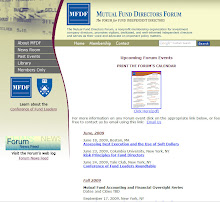A recent decision by the Delaware Court of Chancery, In Re Citigroup Inc. Shareholder Derivative Litigation, No. 3338-CC (Feb. 24, 2009), reaffirmed the business judgment rule with regard to directors' responsibility for overseeing risk. The contours of this responsibility are set out in Delaware's Caremark decision and its legal progeny. This recent Citigroup case reinforces the high burden plaintiffs must bear to sustain claims that directors are personally liable for failure to monitor buisness risk. The case also reiterates the principle that “only a sustained or systemic failure of the board to exercise oversight – such as an utter failure to attempt to assure a reasonable information and reporting system exists – will establish the lack of good faith that is a necessary condition to liability,” and further reinforces that a business judgment that turns out to be bad is not evidence that the decision was made in bad faith, a necessary part of a plaintiff's case.
This case is also important in this particular business climate, because the court makes a point of recognizing the distinctions between director liability arising out of their oversight responsibilities, and liability arising from illegal conduct, and the desire for investors to place blame.
The Delaware Chancery Court's Citigroup opinion is available at: http://www.wlrk.net/docs/1386729_1.pdf

This case is also important in this particular business climate, because the court makes a point of recognizing the distinctions between director liability arising out of their oversight responsibilities, and liability arising from illegal conduct, and the desire for investors to place blame.
It is understandable that investors, and others, want to find someone to hold responsible for these losses, and it is often difficult to distinguish between a desire to blame someone and a desire to force those responsible to account for their wrongdoing.With the increased criticism of and attention to risk management by boards, this case provides some comforting reinforcement of legal principles that have aided directors in fulfilling their fiduciary duties, while at the same time preserving their exercise of sound judgment.
. . .
When one looks past the lofty allegations of duties of oversight and red flags used to dress up these claims, what is left appears to be plaintiff shareholders attempting to hold the director defendants personally liable for making (or allowing to be made) business decisions that, in hindsight, turned out poorly for the Company.
. . .
Ultimately, the discretion granted directors and managers allows them to maximize shareholder value in the long term by taking risks without the debilitating fear that they will be held personally liable if the company experiences losses. This doctrine also means, however, that when the company suffers losses, shareholders may not be able to hold the directors personally liable.
The Delaware Chancery Court's Citigroup opinion is available at: http://www.wlrk.net/docs/1386729_1.pdf






